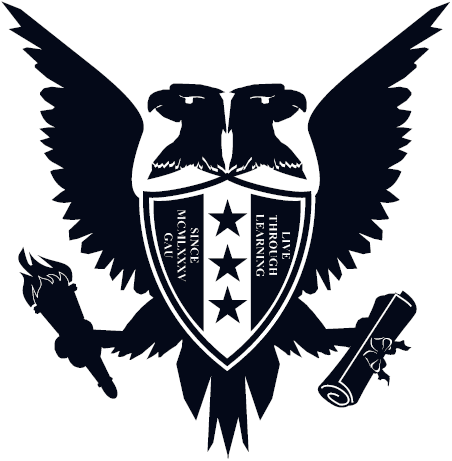GIRNE AMERICAN UNIVERSITY PILOTAGE
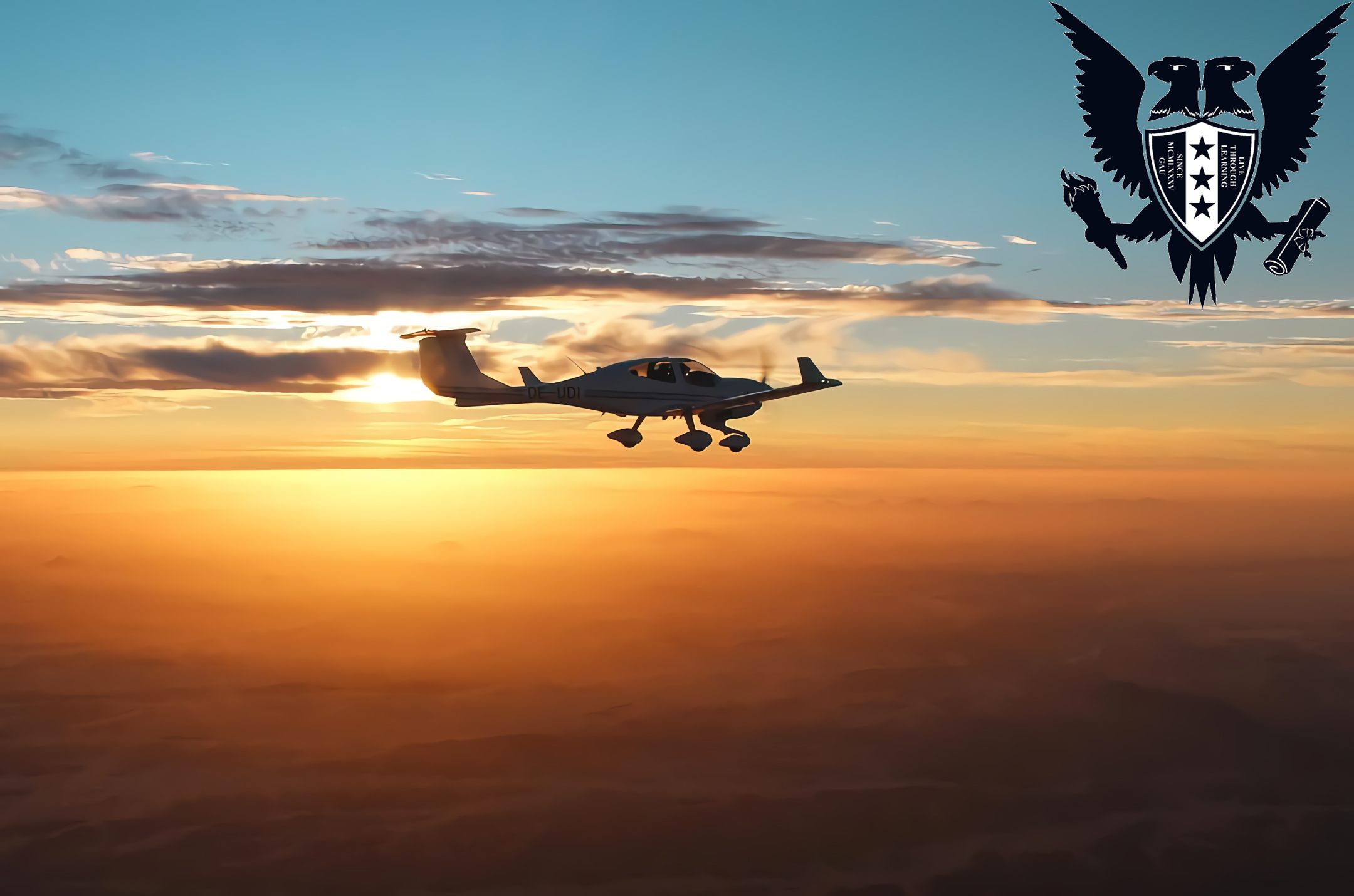
What does Pilot mean?
A pilot is the person in charge of using the plane to get people or goods from one point to another. If you want to do your job and be up in the clouds, piloting may be just for you. Pilot training take time about 18 months, and during this training, candidates receive education various trainings including Theory, Flight and Simulator Training. Being a pilot is one of the exciting and rewarding professions.
Advantage;
- A pilot may work only 8 days a month.
- They do not need to take work home and are finished the moment, when they land the plane at the airport. Pilots earn much better than other professions and their retirement conditions are also very good.
- They travel at a free or discounted rate. Hotels and renting a car are discounted for pilots. Pilots can use the rights granted outside of salary during off-hours. Many pilots love their profession and even fly for fun on days off.
What are the prerequisites for becoming a pilot?
- In order to obtain a Commercial Pilots Licence (CPL), you must first obtain a Student Pilot License (SPL) and a Private Pilot License (PPL). You can find the prerequisites to apply for all these licenses below;
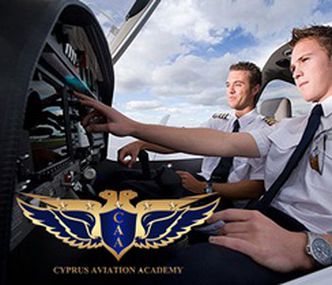
1) Student Pilot License (SPL) application requirements:
a) Completing the age of 17 before their first solo flight. However, it is enough to be over the age of 16 for candidates who will start integrated courses.
b) Being at least a high school or equivalent school graduate.
c) Having a valid 1st or 2nd class health certificate issued by SGHM or aviation medical centers bauthorized by SGHM.
2) Private Pilot License (PPL) application requirements:
a) Being at least 18 years old.
b) Being at least a high school or equivalent school graduate.
c) Having a valid 1st or 2nd class health certificate issued by SGHM or aviation medical centers authorized by SGHM
d) Having successfully completed the necessary theoretical knowledge and flight training in Flight Training Organizations authorized by SGHM.
e) Being successful in the talent exam within 6 months after the flight training and theoretical knowledge exams are completed.
f) Having received the necessary training if night flight authorization is required.
g) Having flight experience specified in this regulation.
3) Commercial Pilots Licence (CPL) application requirements:
a) Being at least 18 years old.
b) Being at least a high school or equivalent school graduate.
c) Having a valid 1st class health certificate issued by SGHM.
d) Having successfully completed the necessary theoretical knowledge and flight training in flight training organizations authorized by SGHM.
e) Being successful in theoretical knowledge exams and flight skill exams.
f) Having flight experience specified in this regulation.
4-) Air Transport Pilot Licence(ATPL) conditions:
a) Beingat least a high school or equivalent school graduate,
b) Having a valid 1st class health certificate issued by SGHM,
c) Having CPL(A) and multi engine IR(A),
d) Having successfully completed the necessary theoretical knowledge and flight training in flight training organizations authorized by SGHM,
e) Being successful in theoretical knowledge exams and flight control,
f) Having flight experience specified in this regulation
Health Requirement
Complying with the International Civil Aviation Organization's (ICAO) Commercial Airline Pilot requirements in Annex-1 and JAR FCL-3. (Candidates will obtain the report certifying that they meet these conditions from the hospitals to be specified on the date to be announced later, with their own means.
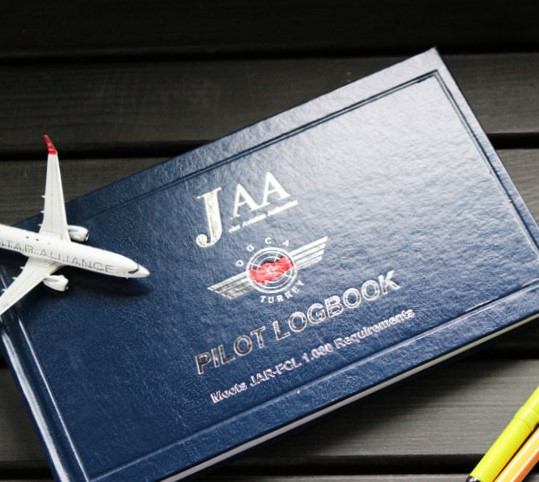
How to get paid pilot education?
-PPL (Private Pilot License)
– There is a flight time of 45 hours and you will be asked to be success ground lessons exams covering 9 PPLs. You complete the flight stage with an instructor. At the end, if you are successful in the control flight, you can pilot (for hobby purposes) on single-engine aircraft without commercial purposes, but this license alone is not enough to apply to airlines.
-PIC/Time Building (Pilot in Command )
- Afterwards, it is your flight time that you need to fill in an average of 90-105 hours depending on the instrumental flight type you will receive. You can do it with a safety pilot with you.
-ATPL ground lessons:
- At this stage, 14 challenging ATPL lessons are waiting for you, you
must complete 14 lessons with at least 75% average per lesson by studying on the online system provided by your school and doing research. As a university, we are in a position to respond to 14 ground courses.)
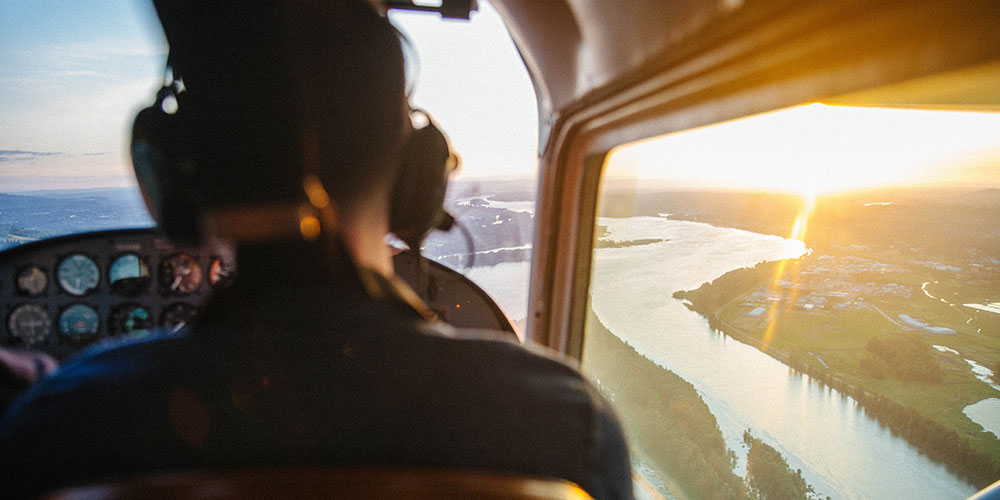
-IR (Instrument Rating)
Your flights until this time were on VFR (Visual Flight Rules-), now you continue your IFR (Instument Flight Rules) flights, which are made with methods based on instruments and indicators in the cockpit with aircraft and simulator hours, where the airlines mostly operate their operations. 50 hours of flight, maximum 35 of which are simulators and you qualify for the control flight. (Students who have completed the ATPL ground lessons and exams are entitled to continue this stage.)
-ME (Multi Engine)
– By flying for 6 hours with a twin-engine airplane, you will receive training such as dual engine airplane control, turning off an engine, etc.
-ME/IR (Multi Engine Instrument Fly)
- You fly on a multi-engine airplane for 5 hours, according to instrument principles.
-CPL (Commercial Pilot License)
- We are approaching the end of the training, you can start your applications to companies if you are successful in the control flight after these 15-hour flights with an instructor pilot.
We have many students who successfully passed these stages and started to work as FO (first officer) in various airlines in our country. Airline companies are keener on recruiting students who have graduated from universities' piloting departments rather than commercial flight schools in civilian areas. In a sense, these students who are more disciplined in academic terms actually start their professional life the day they win the department. Discipline is the essential value of an aviator. The pilot, whose always awake and races against time, knows that where there is no discipline, aviation rules are flexible. Where rules are flexible, accidents are inevitable. It should be known that every single rule which are set up and written in aviation is written with blood. Every accident has brought a rule with it. Our students receive their education with this conscience and say hello to professional life.
Great Reasons for Being a Pilot;
Piloting is a profession that is always in demand. According to Boeing's research, 617,000 new pilots will be needed in the market by 2040. Especially the fact that plane travel is now more economical and practical also increases the requirement and interest in piloting.
Job Guarantee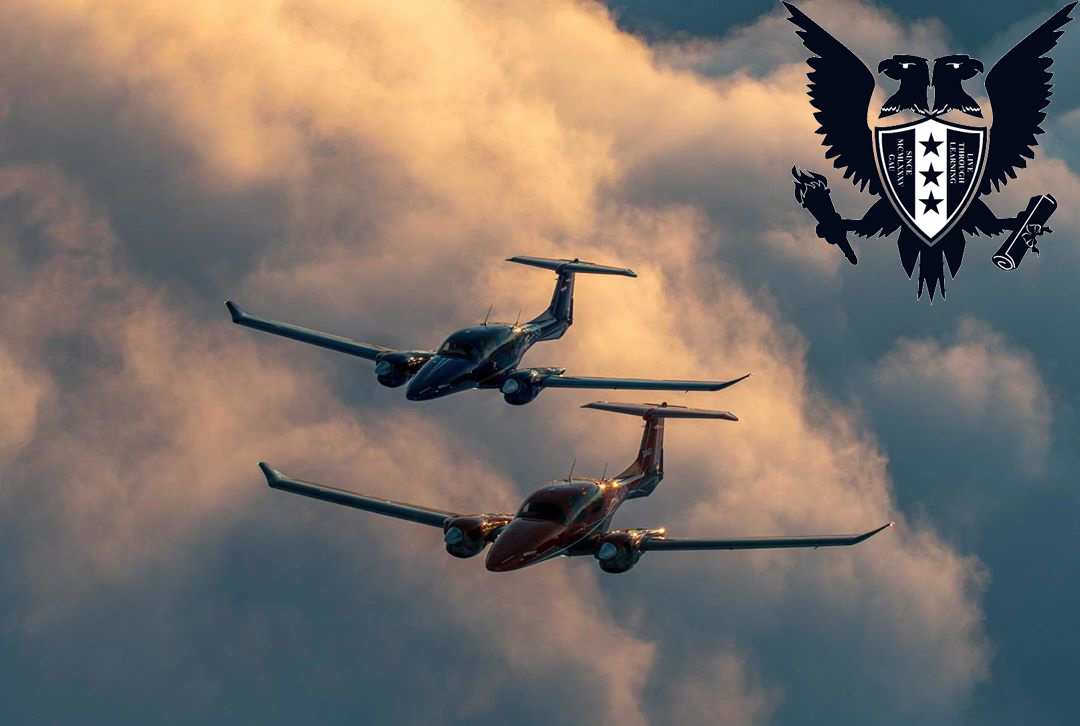
High Salary
Continuous Improvement
Endless Excitement
Working hours
,
Our Aircrafts in our University and Used Actively in Flight Training;
DIAMOND (DA40 TDI):
Jet A1 is a training aircraft that is used in VFR and IFR flight training, which is in the single-engine (L) category for 4 people, feeding fuel with aircraft fuel.
Our TC EED registered DA40 aircraft is at the service of our students under the general aviation license of our university at the PPL, PIC, NR and IR stages.
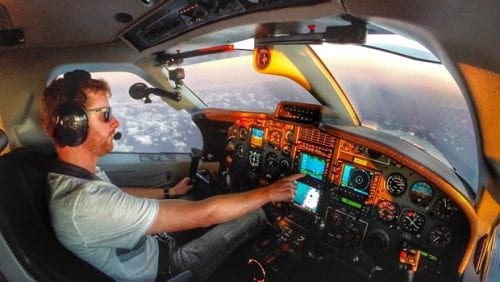 | 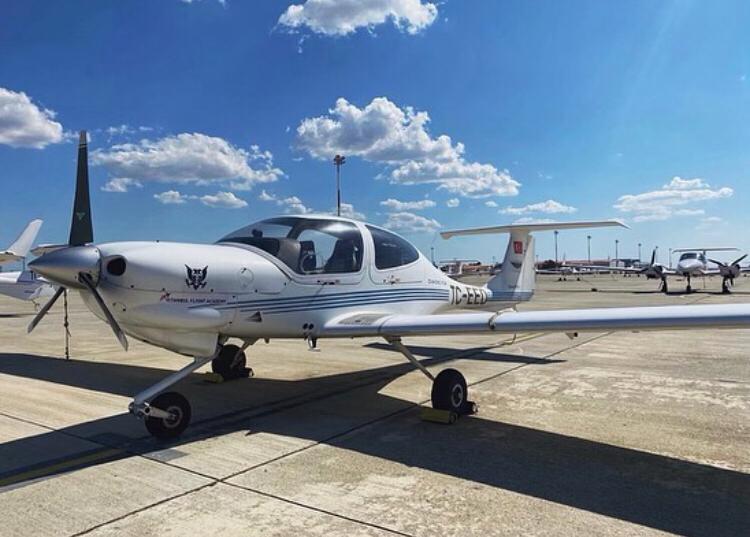 |
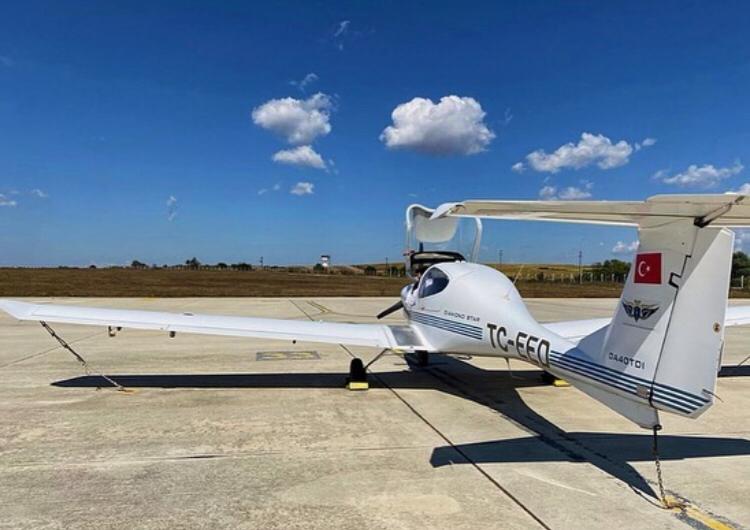 | 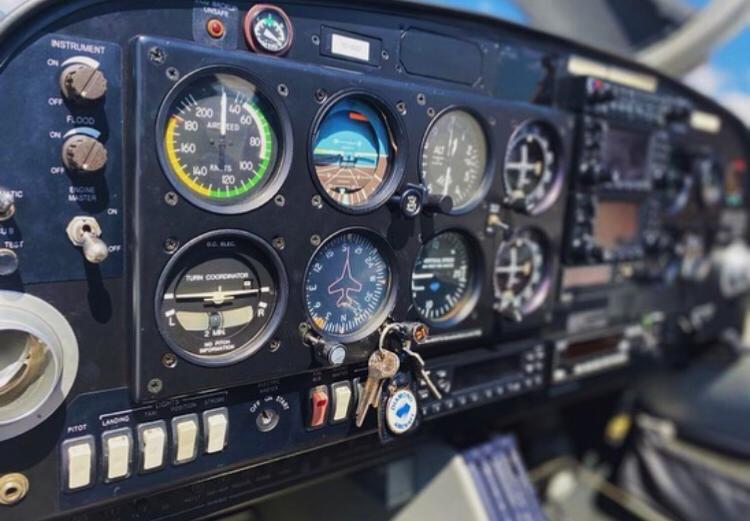 |
CESSNA 172 RG:
AVGAS is an aircraft type that supplies fuel with aircraft fuel, is used actively in the CPL stage, suitable for 4-person VFR and IFR flight training, and has the ability to lift landing gears. Our TC GAL registered C172 RG type aircraft responds to the training of our students at the CPL stage.
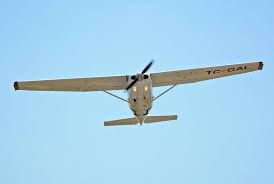
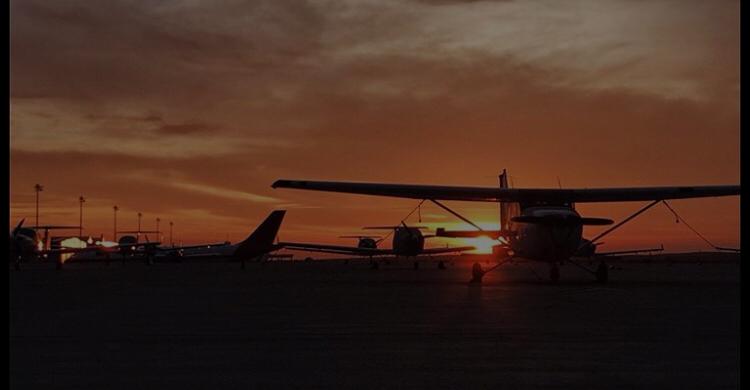
INTERNATIONAL AVIATION ACADEMY
About:
International Aviation Academy offers a multidimensional educational environment that fits the needs of the aviation sector and administration with its international profile that includes three continents, besides the synergy of its “Strategic Alliance” and “Coordinated Sharing” platform in a global, international level, which IAA created within the context of state, university and the aviation sector, and the experience this process brought about.
GAU Aviation School has signed and will continue to sign comprehensive cooperation protocols both in Turkey and foreign countries to train the qualified human resources that the developing aviation sector needs.
Why join this program?
International Aviation Academy started professional pilotage training certification program and also incorporates other significant aviation certification programs. Students from any department or people who want to have pilot certification can benefit from the flight training program in IAA.
Key Information
IAA also organizes sportive aviation and club activities to take individuals into the fascinating and challenging atmosphere of aviation.
Curriculum
The student pilot will also study for the DGCA Knowledge Examination with the assistance of his or her instructor. IAA will recommend an online, CD, or DVD course for students to use in preparation for the Knowledge Examination.
Resources
GAU aircraft fleet consist of two Microlights, three Single Engine training aircrafts (two Diamond DA20C1, and one Retractable Gear and Complex Engine Cessna 172), GAU will add two Diamond DA40 and one Multi Engine aircraft DA42 to its fleet . The training facilities has been established in Tekirdag Corlu Airport to offer flight training, the construction of a hangar in Ercan Airport/ Cyprus is in process.
CERTIFICATION PROGRAMS:
- PPL (Private Pilot Licence)
- CPL (Commercial Pilot Licence)
- ATPL (Airplane Transport Pilot Licence)
- Flight Operations Expertise
- Hostess and Cabin Attendant
- Aviation Law
- Airport Management
- Airport Operations
- Aviation English
- Aviation Meteorology
- Crew Resource Management
- Aviation Management
- Human Factor in Aviation
- Aviation Safety and Security
- Total Quality Management in Aviation
- Aviation Institutions and Regulations
Admission
Pilot students must submit a first class health certificate (Class-1) issued by the authorized aviation medical centers that are recognized by the Directorate General of Civil Aviation (DGCA), along with a clean bill of health which states that the “there are no impediments or limitations that prevent the bearer from serving as the pilot-in-command in single-pilot certified aircrafts.
Pilots must satisfy the necessary conditions stipulated for Student Pilot License applications in Article 24 of the Rules and Regulations for Aircraft Pilot Licenses (SHY-1) published on the Official Gazette No: 26190 on June 6, 2006.
The following documents should be submitted by student:
- Registration form
- Copy of passport
- Student contract (signed)
- High school diploma
- Residency permit
- Visa
- Criminal record from Turkish police office (TRNC criminal record is not acceptable)
Criminal record should contain two sentences:
- 1.Adli Sicil Kaydı Yoktur
- 2.Adli Arşiv kaydı yoktur
- 1st class medical report (from approved hospitals by TR DGCA)
http://web.shgm.gov.tr/documents/sivilhavacilik/files/pdf/saglik_birimi/Liste1.pdf
- English language proficiency, with a 550 TOEFL score or equivalent score at the
GAU administered English test. Those who do not have the required level of
English proficiency are invited to attend the English Foundation School.
- Photo (15 pcs)
- Bank receipt for applying MC and SPL .
You may find the MC and SPL charges tariff from TR DGCA website:
http://web.shgm.gov.tr/en/s/4007-service-tariff
Contact Details
International Admissions,
Girne American University, University Drive,
POB.5, Karmi Campus, Karaoğlanoğlu, Kyrenia / North Cyprus
T: +90 (392) 650 2000 Ext: 1403
E: infostudent@gau.edu.tr
